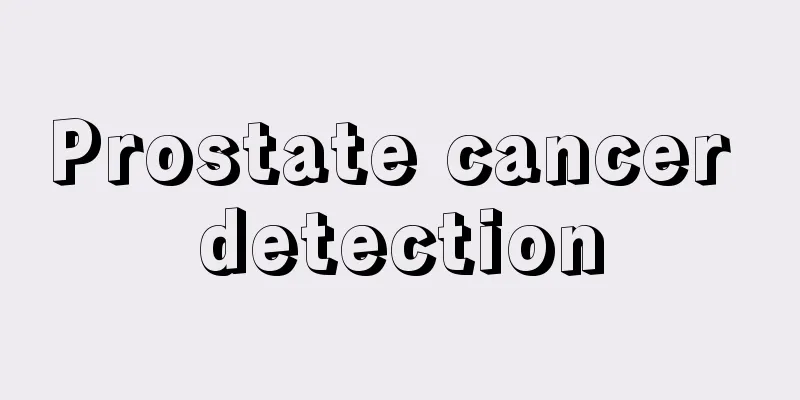What to do if you have osteoporosis

|
There is a certain density in the human skeleton. When the bone density is too loose, it is easy to cause fractures. Therefore, when the bone density is loose, patients should actively find the cause and take correct treatment methods. The chances of osteoporosis in the elderly and children are much higher than in adults, so what treatments should be used after osteoporosis occurs? What causes low bone density? Unbalanced nutrition leads to low bone density 1. Calcium deficiency. 2. Imbalance in the calcium-phosphorus ratio in the diet. 3. Vitamin D deficiency. 4. Excessive fat intake. 5. Long-term insufficient protein intake. 6. Insufficient intake of trace elements. Endocrine disorders lead to low bone density The fluctuation and decrease of estrogen in women's blood with the menstrual cycle and the more drastic drop after menopause may lead to a decrease in bone density. Therefore, ovarian dysfunction and decreased estrogen secretion are important reasons for reduced bone density in women. Low bone density due to age According to the growth law of the human body, the peak bone density of the human body is between 35 and 45 years old, when the calcium content in the bones is the highest. After the age of 35, the body loses calcium at an increasingly faster rate, and bone density decreases year by year. So as we age, our bone density naturally decreases. Lack of exercise leads to low bone density The degree of bone development and bone density are closely related to exercise. An important factor in stimulating osteoblast activity during exercise. Generally speaking, the decrease in bone density in young and middle-aged people is mostly caused by lack of exercise, long-term sitting indoors and other reasons. Other causes of low bone density 1. Disease: suffering from kidney disease, liver disease, diabetes, hypertension, hyperthyroidism, rheumatoid arthritis, ankylosing spondylitis or certain cancers. 2. Medication: long-term use of steroids, anticancer drugs, diuretics, anticoagulants, stomach medicine or painkillers, etc. 3. Genetic factors: people with a family history of osteoporosis are more likely to have low bone density. 4. Affected by bad habits such as alcoholism and smoking. Symptoms of Low Bone Density 1. About 70% of people with low bone density will feel back pain unconsciously, and this pain gradually spreads along the spine to both sides of the body. When people with low bone density lie on their backs or sit down, the pain can be relieved, but if they stand for a long time, the pain will recur. 2. People with low bone density often feel discomfort in their joints when they get up in the morning or bend over, and even feel swelling and pain in the joints of the whole body when they cough hard. Some people who have low bone density for a long time will have their vertebral trabeculae atrophy, and the vertebral bodies will slowly be compressed and deformed. 3. Some people with low bone density will become shorter even after adulthood, and such people often have hunchbacks. This may be because the low density causes osteoporosis, and the body cannot bear the load of body weight, which causes the vertebrae to bend and deform, and ultimately leads to a shortening of height. What to do if you have low bone density Adjust your diet Nutrition has a close relationship with bone density. Improper diet is also an important cause of calcium deficiency and osteoporosis. Therefore, when faced with low bone density, dietary adjustment is the top priority. In daily life, you can eat more milk, beans, and nuts. Also, eat less salt in your diet as salt affects the absorption of calcium. Active calcium supplementation The diet of Chinese residents is mainly plant-based. The calcium intake from diet alone is far from meeting the body's needs, and appropriate calcium supplements should be taken. Children should ensure more than 800 mg of calcium per day, adults need 1000 to 1500 mg of calcium per day, and pregnant and lactating women should increase their calcium intake appropriately. Therefore, if you find that your bone density is decreasing, you should actively supplement calcium. Get more sun Get more sun exposure on a daily basis. Adequate ultraviolet radiation can promote the synthesis of vitamin D in the human body, promote the absorption of calcium by the small intestine, increase the calcium absorption rate, and reduce bone loss. Therefore, getting more sun exposure can improve low bone density. Play sports By increasing physical exercise, moving bones and joints more often, and doing muscle stretching exercises, you can improve the nutritional status of skeletal muscles and increase bone density. You can choose to exercise outdoors, which can also cooperate with the effect of ultraviolet sunlight. Kind tips: When low bone density is diagnosed, the cause should be identified and medication can be used under the guidance of a doctor, which is of great significance in preventing further bone loss. At the same time, bone density should be measured regularly after middle age. Women should go to the hospital for an initial bone density measurement in the early stages of menopause (around 45 years old), and men should go to the hospital for an initial bone density measurement at around 50 years old, which can be used as a reference to observe the degree of changes in bone density in the later stages. |
<<: What disease causes cerebral congestion
>>: Does black tea have a shelf life?
Recommend
Is the probability of recurrence of kidney cancer high?
Is the recurrence rate of kidney cancer high? Man...
What are the causes of endometrial cancer
What are the causes of endometrial cancer? The ca...
The efficacy and contraindications of crystal
Crystal is relatively rare in our daily life, but...
Is liver cancer contagious? 3 liver cancer disease knowledge points introduced
Liver cancer poses a great threat to human life, ...
What are the complications of prostate cancer?
Prostate cancer is a very common and extremely ha...
7 daily necessities can be fatal
In our daily home life, we are often invaded by b...
Can I eat mango flesh that has turned black?
Mango is a very common fruit in people's dail...
How big is a woman's vagina after a natural birth
Although natural childbirth has many benefits for...
Gastric cancer usually causes stomach bloating in the early stages
In the early stages of gastric cancer, the stomac...
Brief introduction: Several common causes of skin cancer
Skin cancer is a very common disease in the world...
External auditory canal osteoma
Osteoma is a very serious disease. It can occur i...
What are some good ways to get rid of acne marks?
Everyone wants to get rid of acne scars, but few ...
Why should babies take cod liver oil
Babies need a lot of nutritional energy to grow. ...
Is it useful to pad the chin if you have a big and protruding mouth?
A big and protruding mouth looks very ugly, but o...
How to overcome inner fear
The fear in people's hearts is something that...









